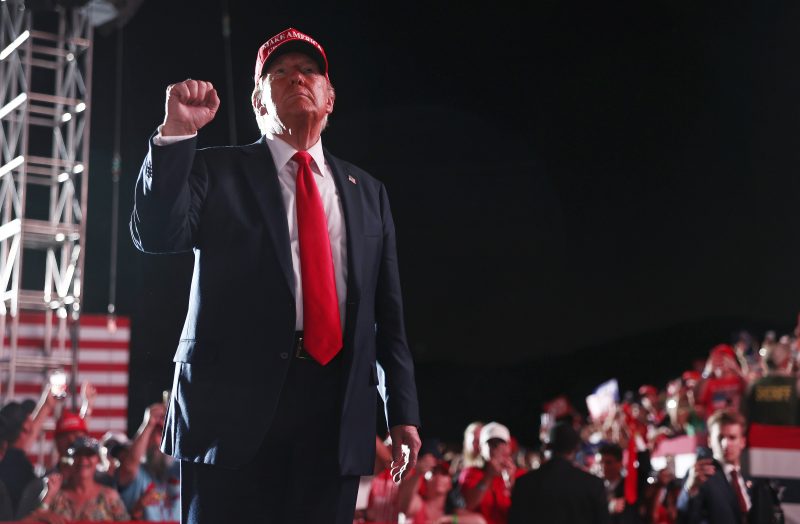In a recent incident following a political rally, former President Donald Trump sparked controversy with his response to a heckler within the crowd. The heckler had interrupted Trump’s speech, leading the former President to suggest that she should get the hell knocked out of her. This heated exchange has generated mixed reactions from the public, raising questions about the appropriate discourse and behavior in political settings.
One of the key points of contention in this incident is the level of aggression and hostility exhibited by Trump towards the heckler. As a prominent political figure and former President of the United States, his words carry significant weight and influence. Advocating for violence or physical harm as a response to dissenting voices is highly concerning and sets a dangerous precedent for public discourse.
Furthermore, Trump’s remarks have been criticized for promoting a hostile and intolerant environment at political events. Respectful dialogue and the exchange of differing opinions are essential components of a healthy democracy. When leaders use inflammatory language or endorse violent actions, it undermines the values of civility and mutual respect that form the foundation of a democratic society.
In response to the backlash following his comments, Trump’s supporters have defended his behavior, citing the right to free speech and the need to maintain order at public events. While it is important to ensure that events run smoothly and that all individuals can express their viewpoints without disruption, resorting to threats of violence is never an acceptable solution.
This incident serves as a reminder of the importance of leadership in shaping the tone and quality of public discourse. Political leaders have a responsibility to set a positive example for their supporters and the general public. By promoting respectful communication and dialogue, leaders can foster a culture of understanding and collaboration, even in the face of differing opinions.
Moving forward, it is crucial for leaders to exercise restraint and moderation in their interactions with protestors or hecklers. Addressing disagreements with patience and empathy, rather than resorting to aggression or hostility, can help to de-escalate tensions and create a more inclusive and constructive political environment.
In conclusion, the recent exchange between Donald Trump and a heckler highlights the challenges of maintaining respectful discourse in the political arena. Leaders must uphold the values of civility and mutual respect, even in the face of disagreement or conflict. By promoting a culture of open communication and tolerance, we can work towards a more harmonious and democratic society.

